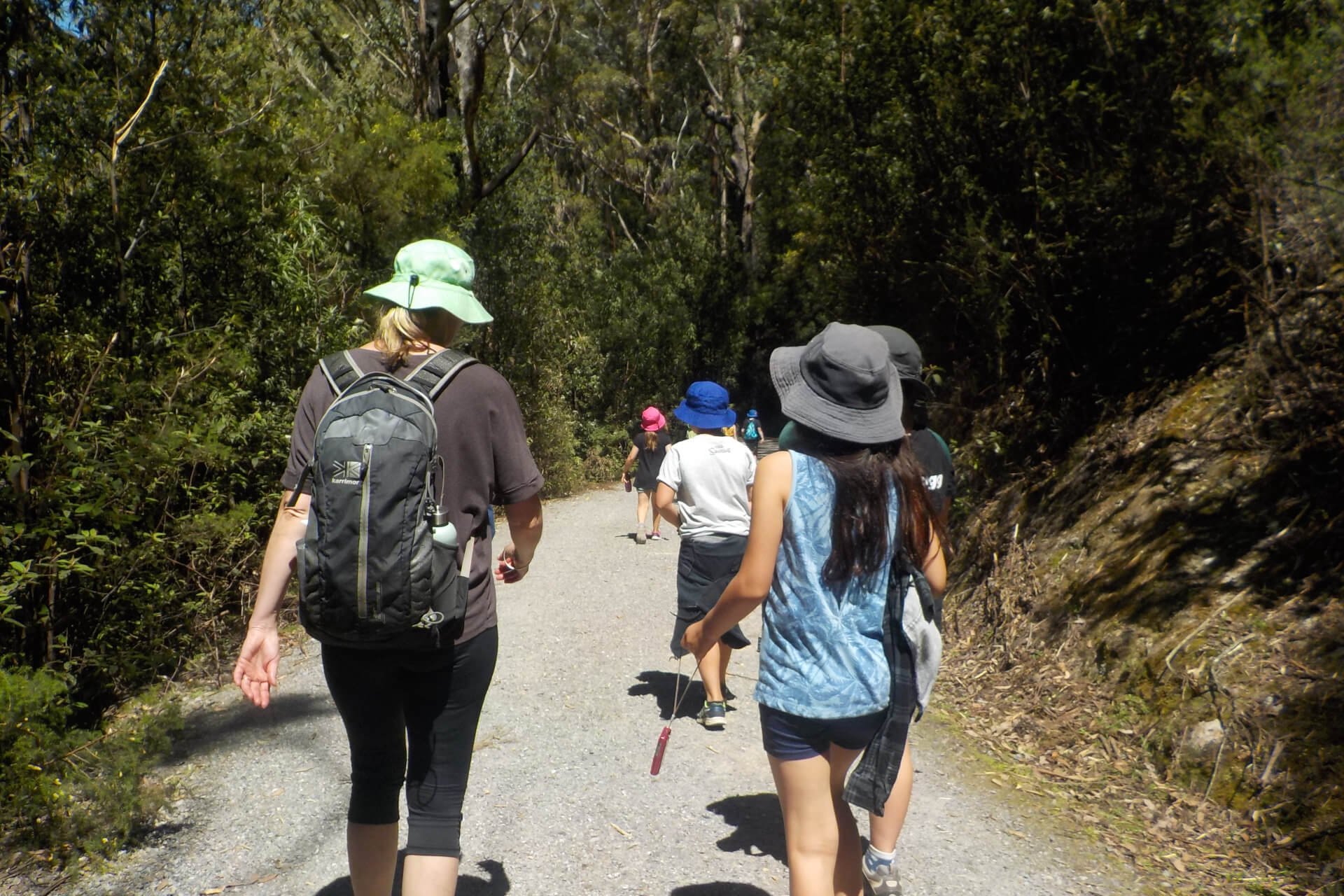
Outdoor Education
We bring the outdoors into the classroom and classes in the outdoors as often as possible.
With our natural grounds and bush surrounds, outdoor education is an integral part of our learning experiences at Village School, helping students develop an appreciation of the natural world and their relationship with it.
Our outdoor education environment
Our school is set on 8 acres of land in the eastern suburbs of Melbourne, surrounded by wetlands and trees. Our wetlands also provide ample opportunities for interacting with the local plants and animals, including eucalyptus trees and the wild rabbits that regularly wander through our school. We take advantage of these amazing natural resources at our disposal to help students build a strong relationship with the outdoors, bringing the outdoors into the classroom and classes in the outdoors as often as possible.
Outdoor education at Village School
Our integrated approach to outdoor education allows us to use a range of activities to enhance our students’ understanding of nature, and adapt our programs based on their current level of interest and ability.
-
We often take walks through the wetlands areas, along our specially created walking path, to discuss particular aspects of the environment and natural flora and fauna.
Our students also assist with weed and rubbish removal projects, both on-site and in the local area, and plant trees and natives as part of our grounds improvement activities.
-
From a very young age, we encourage all students to practice self-reliance, and our yearly whole school camps help to reinforce children’s awareness of their capabilities.
We encourage students to carry their own bags, prepare their own lunches and pack and unpack their belongings, at school, at home and when on camp or an excursion.
-
Working together is emphasised at Village School through our buddy systems, and children of all ages interact during breaks and class times, especially when someone is struggling or in need of help.
We support children in speaking up and expressing their opinions and needs, while allowing them the opportunity to experience the impact of their choices and actions in a safe environment.
-
Children develop an awareness of the important needs to meet when engaged in outdoor activities, whether that’s safe and comfortable shoes, enough food and water, or personal hygiene.
-
Along with the basics of outdoor safety, such as using appropriate sun protection and choosing clothes to suit the weather, our students learn to navigate our wetlands safely and responsibly.
They also have direct experiences of their response to nature, the effects of spending time outdoors and the impact on their mood and health.
-
Our outdoor education program encourages investigation of the environment and curiosity about the things we find, whether they’re intriguing or concerning.
Learning to read the outdoors and reflecting on the current conditions – whether that’s the weather conditions, light levels or hazards – helps students understand and connect better with nature.
-
At school and out on excursions or camps, we help students recognise the impact that their actions and decisions can have on the natural world.
Many of our students engage enthusiastically in conservation projects, whether that’s around the school grounds, or at a global scale, and develop a strong sense of environmental sustainability.
-
Our outdoor environment presents a fantastic range of sensory experiences, whether that’s the feel of a plant, the smell of crushed leaves, or seeing the colours of flowers.
Students enjoy building cubbies around the school grounds, and develop an understanding of the give and take between people and nature.
-
Play is an important part of the curriculum at Village School, and our wide open spaces allow our students to run, jump, climb and explore the outdoors.
Our students also express their creativity in the outdoors, whether that’s seeing what they can find around the next corner, or organising an energetic game with friends.
Examples of outdoor education activities
Our children develop a deep appreciation of the natural world through their real-life interactions with the outdoors in a wide variety of ways.
-
The children collect compost from rubbish and on a weekly basis pick up the horse manure and compost it to eventually use on the gardens.
-
The cubby culture is always present during breaks and lunches and rules have been devised in whole school meetings concerning these activities.
There is a currency of pine cones attached to these cubbies and the children sell each other good cubby sticks or cubby crystals in exchange for pine cones. At times, it feels like there’s another little culture running independently of the real world with these cubbies.
-
We use the wetlands area to involve the children in maintaining a natural environment and often see the tawny owl, and natural ducks and ibis. Occasionally we spot an echidna. We also have some wonderful varieties of fungi to discover.




